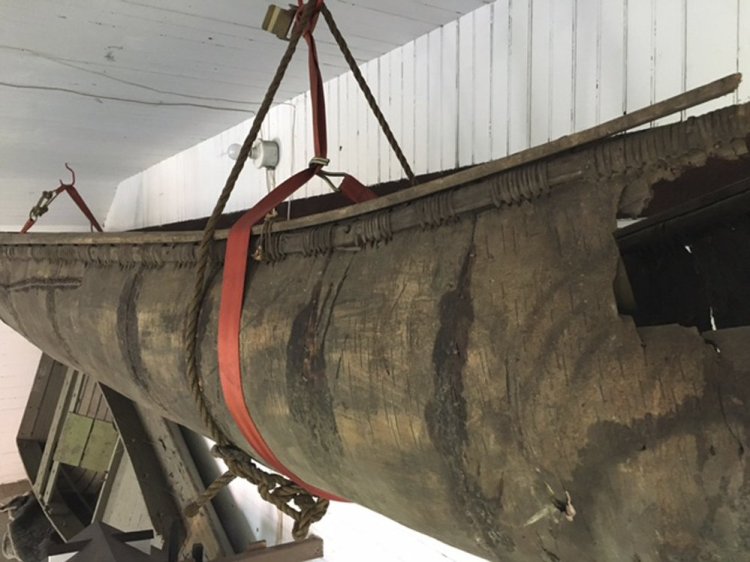BRUNSWICK — One of the oldest-known Native American birch-bark canoes will go on display at a Maine historical society museum, possibly as early as this fall, after spending three decades in a barn.
Carbon dating by the Pejepscot Historical Society in Brunswick shows the Wabanaki canoe was likely made sometime between 1729 and 1789. Museum records date the canoe to the mid-1700s.
The Wabanaki Confederacy is a group of Native American nations who lived primarily in Maine, New Hampshire, Vermont, Massachusetts and parts of Atlantic Canada.
Larissa Vigue Picard, the historical society’s executive director, said the Wabanaki artifact is “priceless” and could be the oldest birch-bark canoe in existence.
Native Americans have been making these canoes for 3,000 years. But only a few of the earliest ones still exist because birch bark is so fragile, said Laurie LaBar, chief curator of history and decorative arts at the Maine State Museum in Augusta.
The Pejepscot Historical Society came in possession of the 16-foot-long canoe in 1889.
Museum officials said it was donated to the organization after being passed down through generations in the family of William Barnes, a sea captain from Harpswell, who received the canoe as a gift from a tribe.
It’s spent the last three decades in a barn behind the museum, exposed to extreme temperatures and humidity, but is in relatively good shape.
Built by standards of the 1700s, it was held together with wooden pegs instead of nails or other modern fasteners brought to America by Europeans, according to the historical society’s Stephanie Ruddock.
The canoes were popular with early explorers because they were much lighter than dugout canoes made from tree trunks, and could be carried.
Send questions/comments to the editors.



Success. Please wait for the page to reload. If the page does not reload within 5 seconds, please refresh the page.
Enter your email and password to access comments.
Hi, to comment on stories you must . This profile is in addition to your subscription and website login.
Already have a commenting profile? .
Invalid username/password.
Please check your email to confirm and complete your registration.
Only subscribers are eligible to post comments. Please subscribe or login first for digital access. Here’s why.
Use the form below to reset your password. When you've submitted your account email, we will send an email with a reset code.